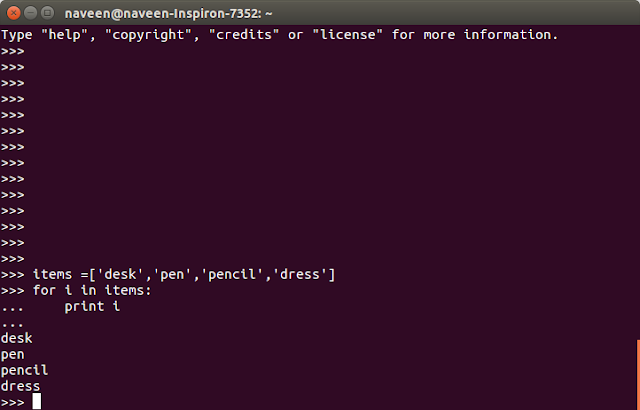I find it very handy in Python programming language , because looping through list and reading each values are very easy in List.
num = [3,4,5,6]
items = ['desk','pen','pencil']
you can read through List very easily as below -

2. split function
You can split a string with any seperator and put into a list very easily with this function.
3.Map function
Map applies a function to all the items in an input_list.
Output:
{1,4,9,16]
4. Reduce Function:
Reduce is a really useful function for performing some computation on a list and returning the result.
Below example we are passing the 'sum' function to inbuild 'reduce' function and getting the total sum for the list of numbers.
Output:
14
5.Some thing you find very strange in Python ( Mutable and Immutable objects)
I thought it was bug, but its not ..
eg:
First Lets me create a list as below.
a = [1,2]
then simply create another list 'b' and assign 'a' + [3]
b= a;
b+=[3]
what you will expect on 'b' .. obviously .. [1,2,3]
But what you expect on 'a'... I thought that i didn't change anything in 'a' , so it should be same, but what actually 'print a' become [1,2,3]
read below link for more details - http://book.pythontips.com/en/latest/mutation.html
https://codehabitude.com/2013/12/24/python-objects-mutable-vs-immutable/




No comments:
Post a Comment